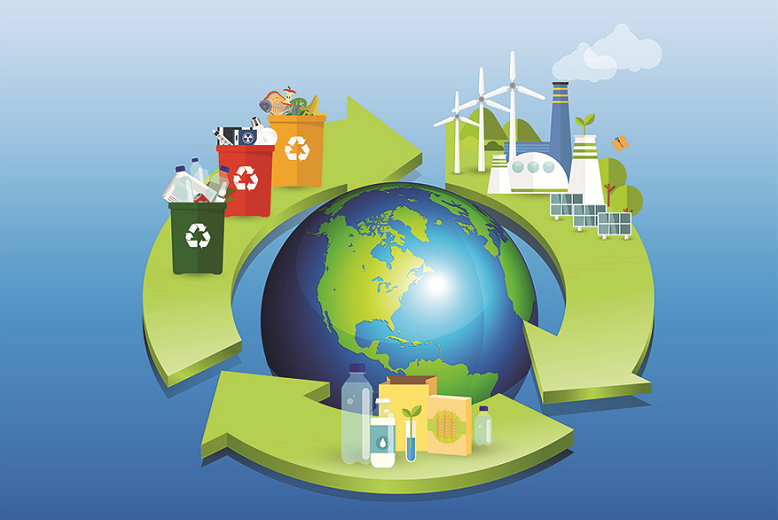Spain leads circular economy in Europe alongside Sweden and Denmark

The success of circular strategies depends on the regional and local implementation of EU policies
Spain, together with Sweden and Denmark, is the European leader in adopting circular economy strategies. This is one of the main conclusions of the report Geography of the Circular Economy in the Regions, commissioned by the Foundation for Energy and Environmental Sustainability (Fundación para la Sostenibilidad Energética y Ambiental – Funseam).
The circular economy is gaining prominence with respect to the political interest in building an alternative to complement the traditional economic model. The concept of closing the loop by recycling or giving products a second life contributes to building a more environmentally sustainable economy. However, the authors still lack more public policy support.
Regional strategies
Among the barriers to adopting circular strategies, the report highlights those that affect the bureaucratic structure of some regions, such as the complexity of administrative and legal procedures. These types of obstacles, it explains, must be removed to prevent some regions from being left behind in adopting this type of action.
The inclusion of the circular economy in the European Green Deal, adopted by the European Commission in 2019, marked a step forward in implementing these strategies. The authors emphasise that the success of policies to promote the circular economy depends on local and regional initiatives.
Policy dovetailing
The European Union’s latest Circular Action Plan already speaks of the need to enhance the cooperation of all stakeholders, at the EU itself and all the way down to local level. Coordination is essential, because adopting circular strategies requires a complex process involving many stakeholders and initiatives that affect many industries. It is also a source of opportunities and paves the way for a promising future.
Another particularly interesting finding of the report specifically deals with the way in which the circle is closed in the different regions of Europe, with Spain, Sweden and Finland being leading countries in terms of participating in circular activities.
The study did in particular identify greater specialisation in Western Europe in circular strategies focused on closing the resource cycle, with activities such as recycling, reuse and recovery, as well as the use of renewable energy. In the east of the continent, however, processes are more focused on reducing the natural resources used.




